Forspoken hands-on: I'm sold on its magic, but not wowed by its world
Forspoken shows potential, but I'm still waiting to be sold on it overall
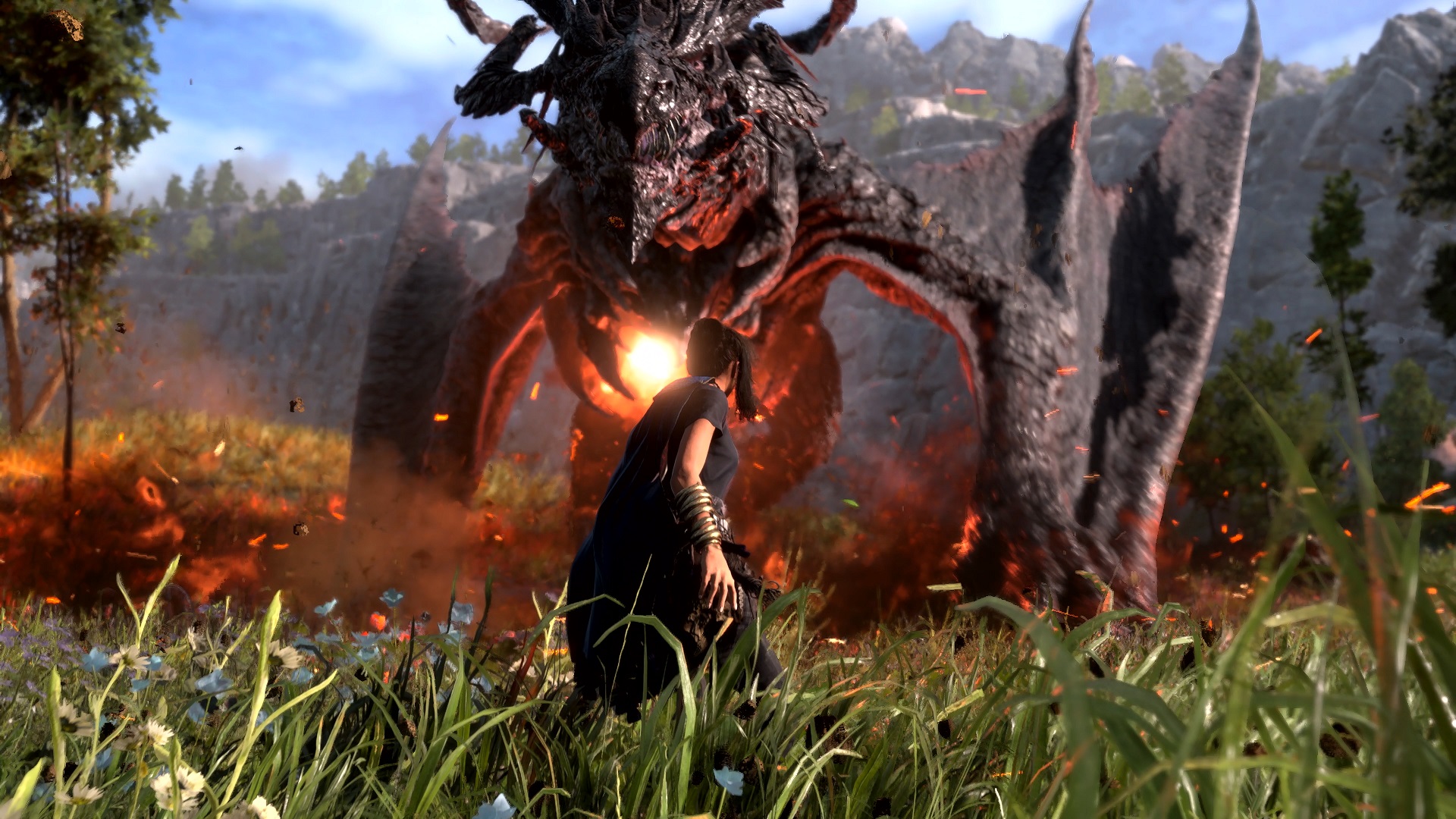
Near the opening of Chapter 2 in Forspoken, I get my first taste of wielding magic as protagonist Frey Holland. Newly arrived in Athia, I'm learning the ropes as I'm pitted against a strange creature that looks like a cross between a bear and wolf, whose sharp teeth jut out across the entire length of its body like one giant maw. With a mix of quick-fire spells and heavier blows, the magic combat feels snappy and satisfying, with bursts of damage splaying onto the screen as I take down chunks of health from my aggressor. The fight is over quickly, but this short conflict is enough to leave me wanting more - and thankfully I don't have to wait long before I'm throwing out more spells.
During my hands-on time with Forspoken, I check out chapters 2, 3, and 5 to get a feel for combat, magic parkour, and early stages of the story. The main highlight time and again as I progress through the chapters is Frey's arsenal of spells and the progression systems that allow you to advance your skills further. But from what little I've seen of the world so far, Athia feels a bit one note. The story has done little to make a big impression, but with the bones of a fun concept driving Frey's adventure and interesting systems revolving around magic, I can see the potential here.
Magic might
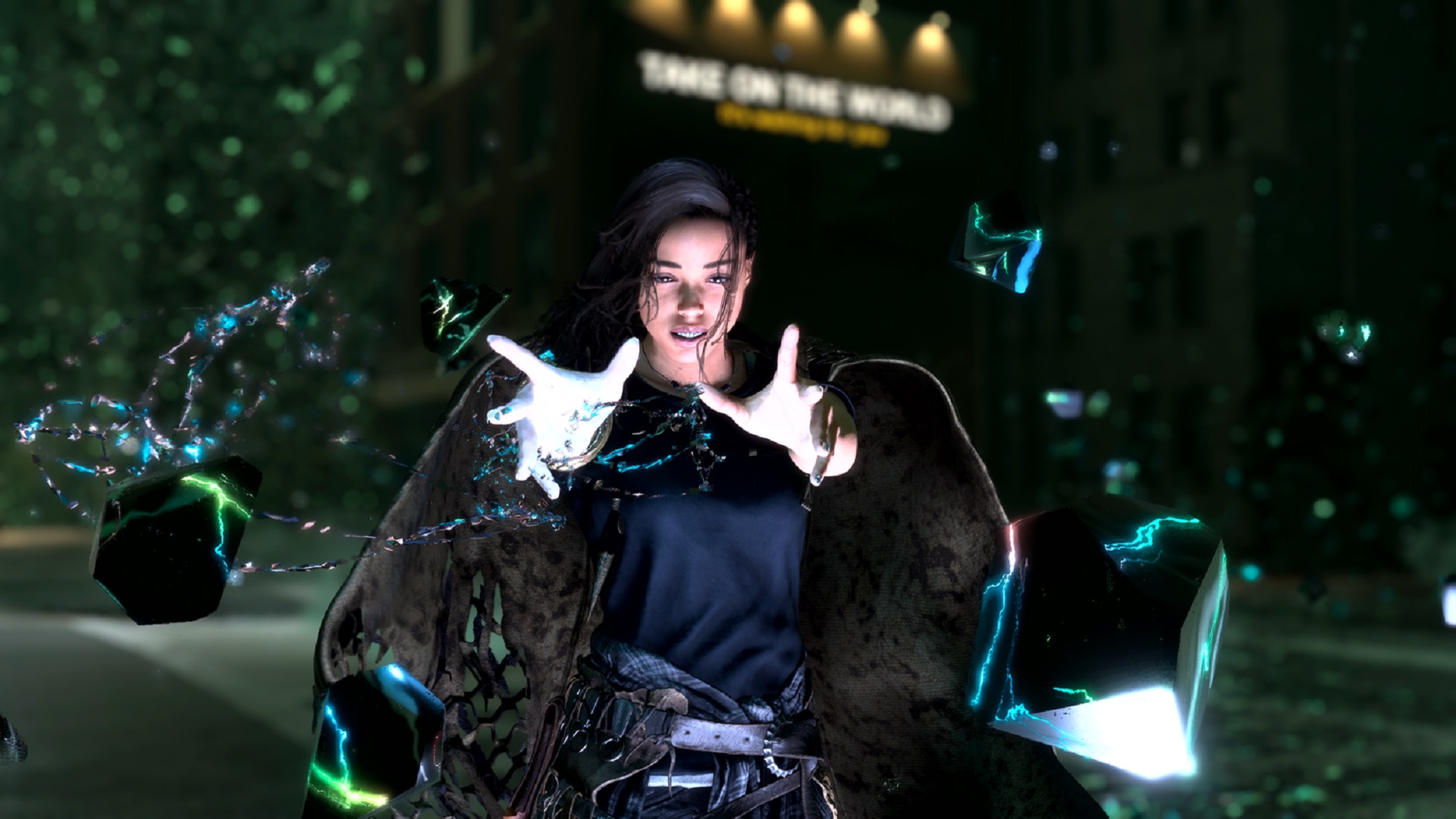
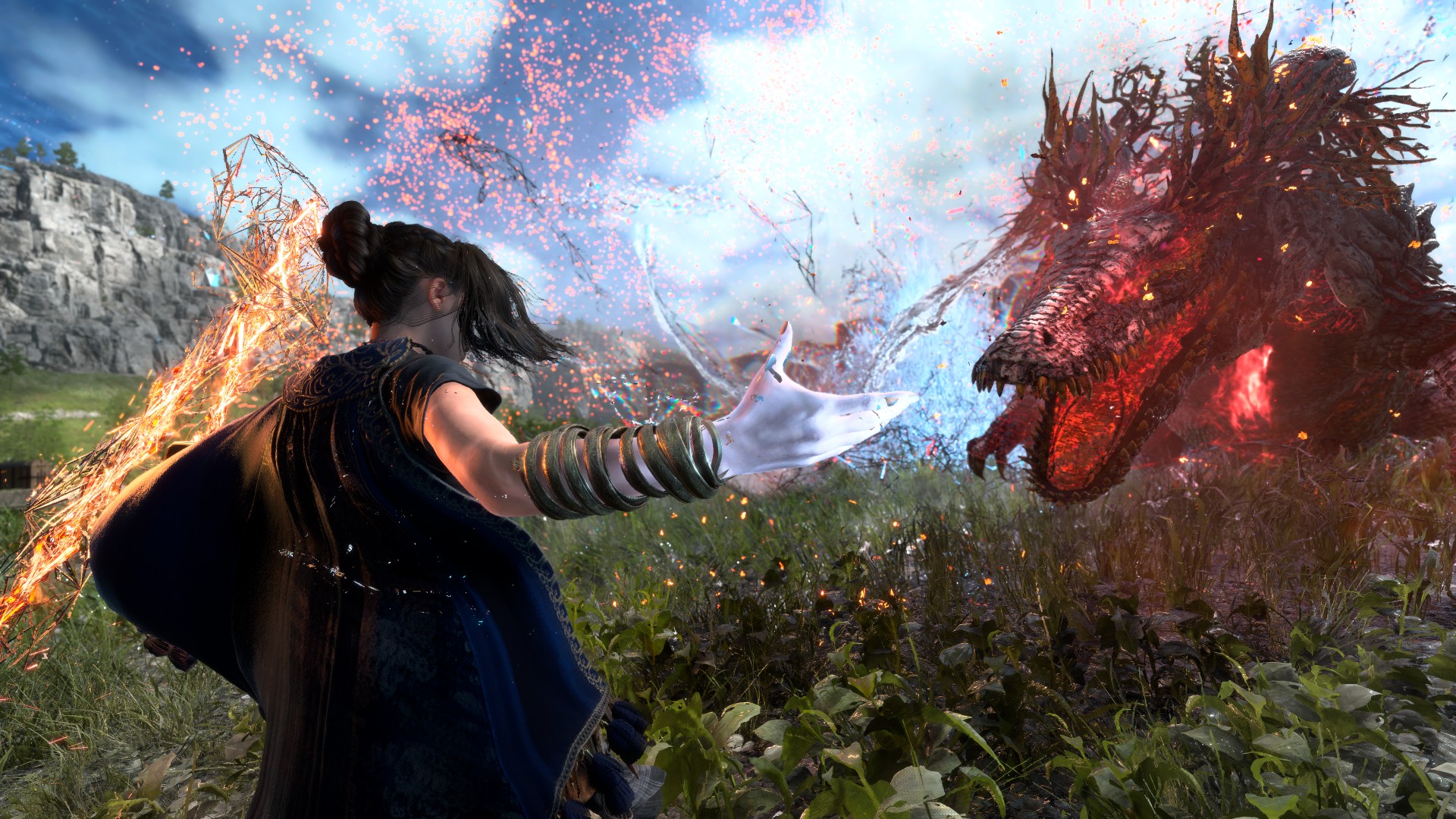
Forspoken's combat is a barrage of layered spells that reflect the best of Breath of the Wild
Chapter 2 begins just as Frey is transported into the fantasy world from her home in New York. Cuff, a sentient vambrace who's already wrapped around Frey's arm when I first meet her, immediately takes on the role of a guide who helps me navigate my first steps in Athia. The pair, who are brought together for reasons as yet unknown, appear to reluctantly form a team, with a lot of sarcasm underpinning their exchanges as the chapters go on. After offering to answer any questions I may have, the talking bracelet conjures a golden trail using a feature known as Cuff Compass, indicating the path I need to take to find shelter in this strange new land. I also use Cuff to scan the area, which is a useful feature that highlights the landscape - much like the scanning mechanics found in other open-world games like Dragon Age: Inquisition.
As yet more enemies appear on the scene, I then get to use the newly unlocked magical parkour skill for the first time in order to vault over a wall and make my getaway. While it doesn't feel as satisfying to use as the magic in the arena of battle, Frey moves in a speedy fashion as light emits from her sneakers and soars over a wall with fluid ease. With progression systems that will see you unlock more spells, magical parkour can also be upgraded, which, as co-director Takefumi Terada-san explains, will add to the skill over time.
"We really wanted to start with what a normal human could do and then explore what would happen if you added magic on top of that," Terada-san says of the concept of magic parkour. "So for example, whether that's moving extremely fast speeds, whether that's jumping a huge distance, we really have that as our base. At the moment, you're playing an early part of the game, but as you progress through to the middle into the later parts, more and more actions will open up. And so that's something again that we really hope people enjoy engaging with in the game."
At this early stage, I'm not immediately as invested in the means of traversal as I am in combat in terms of how it handles. But a little further along the way, I unlock a leap which helps me kick off a wall to climb higher. It gives the skill an extra oomph as I make my way over a ruin, and I'm left with a desire to discover how other additional actions may elevate the skill and affect the feel of using it overall as you advance through the game.
While it serves as your way of exploring the landscape, magic parkour also comes into play in combat. After my quick escape, I'm soon thrown into a boss battle against a big dragon. Compared to the bear-like creatures I've faced previously, this fight feels fast and chaotic, but I relish the chance to fire out punchy spells against the giant fire-breathing foe. Using magical parkour to dodge out of the way, the battle feels very much like it's putting my dodging skills to the test more than anything else - with me continuously trying to get out of the line of fire until the large beast pauses so I can send out more bursts of magic at the weak spot on its belly. With some of the development team having previously worked on Final Fantasy 15, the cadence of the boss battle feels familiar, with the spells lending it a different spin.
Sign up to the GamesRadar+ Newsletter
Weekly digests, tales from the communities you love, and more
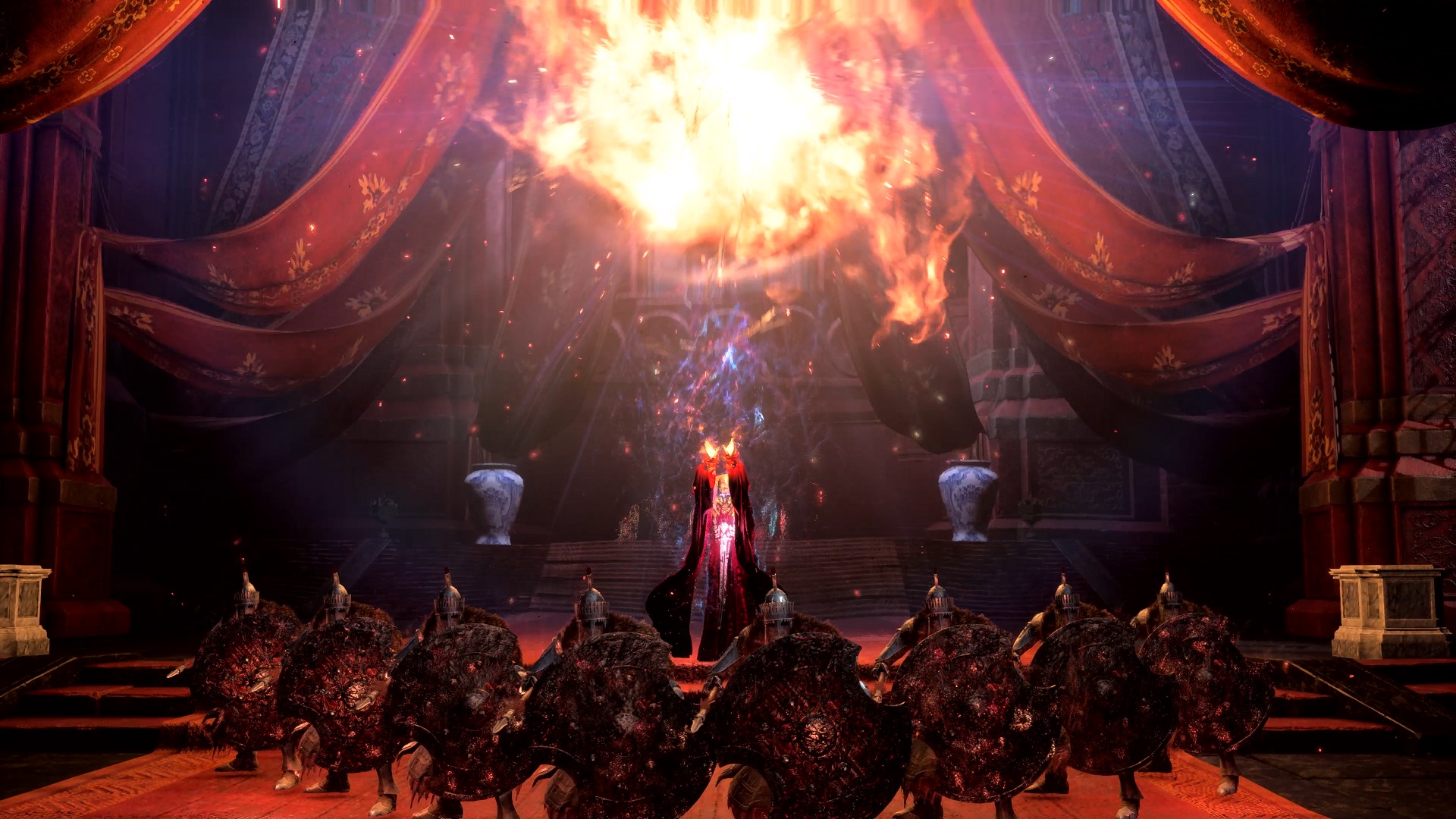
By the time I reach chapter 5, there's a noticeable difficulty spike that I struggle to get to grips with. Having made my way through a castle area filled with enemies, I have a finite amount of healing potions when I go up against Tanta Sila, one of the major villains in the world of Forspoken, and my second boss battle of the session. With three different stages, the fight gets progressively harder and my dodging skills are put to the test once again. On normal difficulty, beating the Tanta is no small feat, but along with an easier setting to take it down to, there is a sense that hopefully more time and practise with the spells would make it more forgiving.
The only downside to combat so far is Cuff, who has a habit of commenting on my moves, with some lines repeated here and there. While the talking bracelet does have a practical role to play in combat - by alerting you to attacks that are about to take you unawares or highlighting what direction an unseen foe is coming at you - more often than not it says one liners that don't contribute much at all. This is pretty harmless in itself to begin with, but as the session progressed, I became more aware of lines that I'd heard before. Cuff is pretty chatty generally - even when I stand idle for a spell, it makes a remark about my inactivity. If the conversations lessened in combat especially, it would certainly be less noticeable (I later learned there appears to be a setting to address the frequency of the chatter in-game that I didn't get the chance to use).
Barren lands
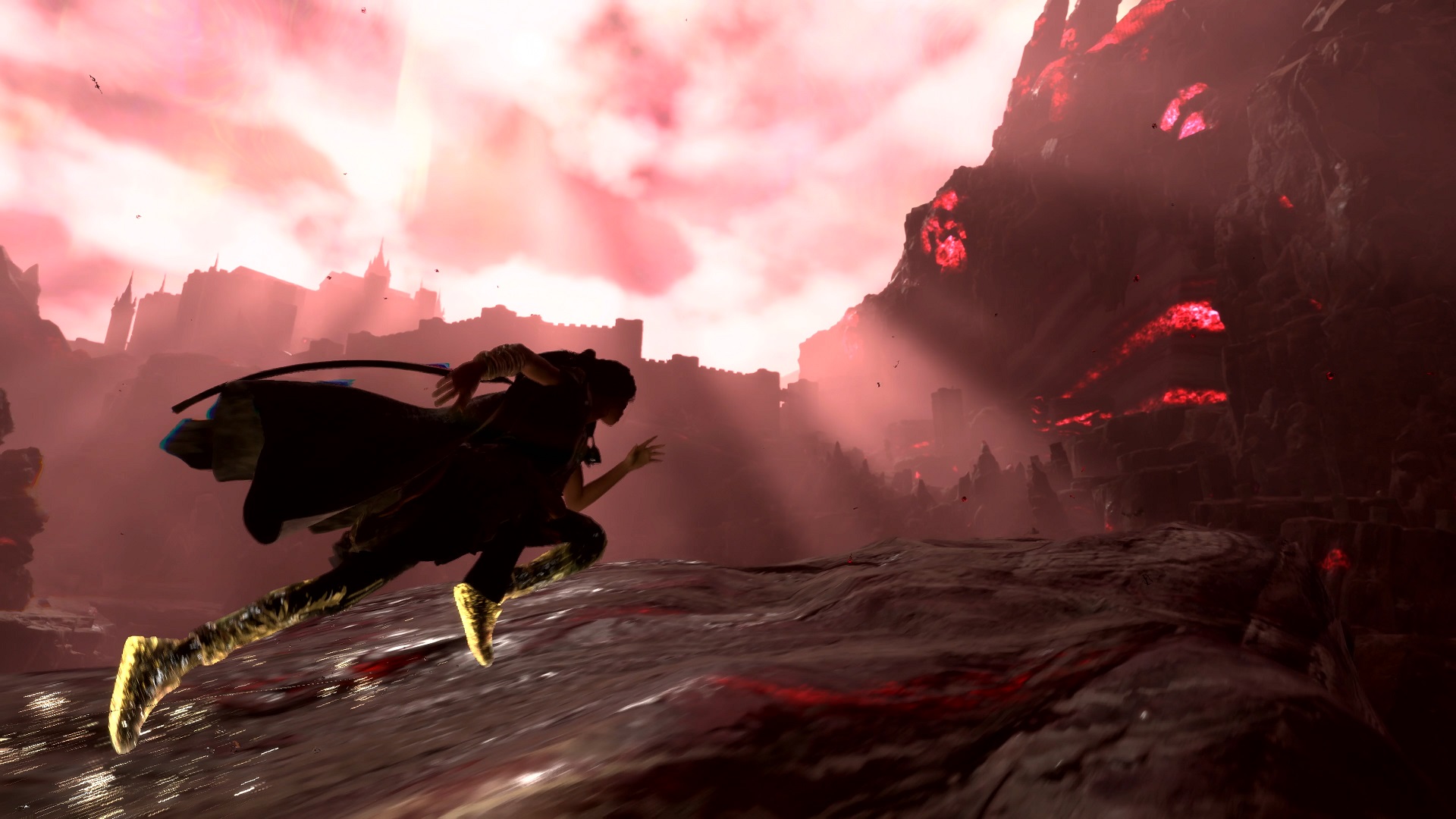
While the initial opening chapter I play is quite linear as it sets up Frey skills, chapter 3 allows me to step into the open-world proper after an introduction to Cipal - a city in Athia where survivors of the Break have taken refuge. The first open area I step foot in is known as the Barren Plains, and as the name suggests, it's certainly not brimming with life. Dusty landscapes stretch out before me, with some ruins dotted here and there. Prior to coming into the open-world space at large, I find myself fighting against zombie-like foes that were once citizens of Athia, illustrating the corruption that grips this fantastical setting.
To this point, all I've seen of Athia seems a bit grey and lifeless, and not terribly exciting. To be fair, ruins and no signs of life speak to the devoid nature of Athia and the aftermath and ongoing effects of this mysterious corruptive force. Frey herself comments on a town in an earlier part of the game and notes that everything looks broken because of this miasma. It does at times, though, fall into the realms of feeling a bit empty.
What I've seen of the story and its writing so far falls a bit flat, especially since I didn't get to see the foundations of Frey's story, which inevitably invites questions about her as a character - such as how her past shaped her and why she handles situations in the way that she does. But where Forspoken mainly excels is in its various RPG progression systems and its combat. With crafting gear that can be upgraded, designs that can be added to Frey's fingernails that give certain buffs, a skill tree to advance skills, and Founts of Blessing that can be found in the world to learn new spells, it's plain to see that Luminous Productions experience in the genre pays off here.
Progression
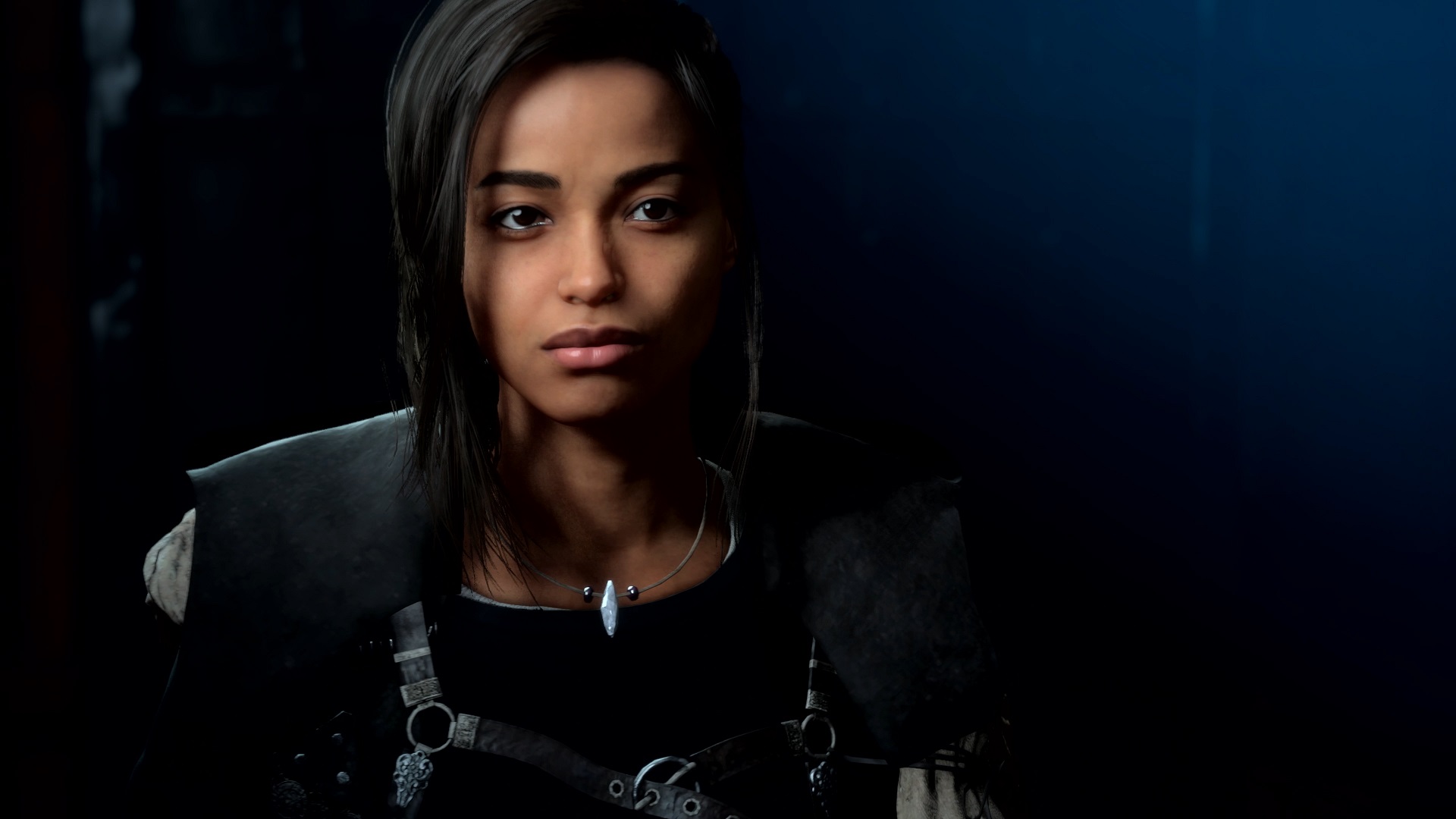
There are features that are reminiscent of Final Fantasy 15 that work well, too, including a rating system in battle and dungeon-like areas known as locked labyrinths where you can put your command of Frey's spells to the test. While I wasn't entirely hooked in by the world and story - which I hope will change as I spend more time with Forspoken - the magic and the way in which Luminous has provided so much variety to let us decide how we want to fight, is currently its biggest draw.
"We've had a lot of experience in creating RPGs, so for us, it seems sort of self-evident that there should be some kind of way to power up and to level up her spells as you're going through," Terada-san says. "And then on top of that, we also decided on this idea of having a hundred spells and what that really does to us is it sort of means that each player can find their own individual playstyle. So one player might say I want to use the close range spells, someone else might say I want to fight from long range and we really wanted to make the progression system into something that each player could develop in their own way and find their own niche."
Which, to me, sounds exciting! But Forspoken needs more in the way of character development and world-building at this stage if it's to grab me wholeheartedly. I guess we'll see the full extent of Frey's adventure come January 23, 2023, when Forspoken lands on PS5 and PC.
Keep up to date with all of the future releases on the horizon with our roundup of upcoming PS5 games and new games for 2023 and beyond.

I started out writing for the games section of a student-run website as an undergrad, and continued to write about games in my free time during retail and temp jobs for a number of years. Eventually, I earned an MA in magazine journalism at Cardiff University, and soon after got my first official role in the industry as a content editor for Stuff magazine. After writing about all things tech and games-related, I then did a brief stint as a freelancer before I landed my role as a staff writer here at GamesRadar+. Now I get to write features, previews, and reviews, and when I'm not doing that, you can usually find me lost in any one of the Dragon Age or Mass Effect games, tucking into another delightful indie, or drinking far too much tea for my own good.


